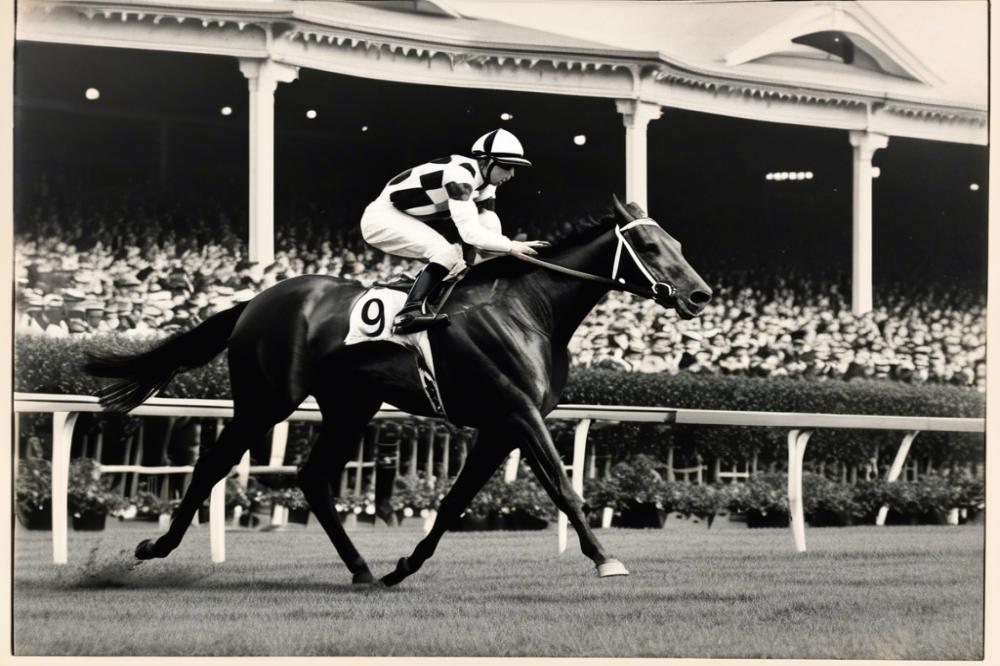Overview of Dewey as a Racehorse
Dewey stands out as a remarkable racehorse in the history of Australian racing. He was an impressive arabian thoroughbred horse known for both his speed and strength. Many people admired him for his spirited nature. His pedigree showed he came from great lineage, which added to his reputation on the racetrack. Winning races was not foreign to him, as he had several triumphs before claiming the prestigious Caulfield Cup.
Significance of His Win in the Caulfield Cup Australia in 1899
Winning the Caulfield Cup in 1899 marked a high point in Dewey’s racing career. This event is one of the most important horse races in Australia. It symbolizes not just a victory, but a significant achievement in the world of thoroughbred racing. For many, his win in this event solidified his status as one of the greats. Fans and trainers alike celebrated this moment. Kahng at the event drew a crowd that witnessed history being made.
Dewey’s legacy in Australian racing continues to influence aspiring jockeys and trainers today. Notably, his racing style and determination serve as inspiration for horses and their handlers. This victory not only showcased his athleticism but also brought a broader attention to the breed. The excitement of such races fuels discussions and is often a talking point among horse enthusiasts. Moreover, questions arise like “can horses eat whole corn?” as people explore the dietary needs of these magnificent animals. Overall, Dewey’s win remains an important chapter in the tale of Australian racing history.
History and Origin of Dewey
Geographic origins of Dewey
Dewey was born in Australia, a country known for its rich horse racing tradition. The landscape here features vast fields and warm climates, ideal for raising racehorses. Many horses thrive in this environment, which helps them develop into strong competitors. Dewey’s early days were spent on lush pastures, where he grew into a remarkable specimen. This Australian backdrop played a crucial role in shaping his abilities.
Background of his lineage and breeding
His lineage is steeped in a fascinating legacy. Dewey came from a line of thoroughbreds, known for their speed and stamina. Breeders focused on selecting top-quality parents to create exceptional offspring. This careful selection process is vital for producing elite racehorses. Dewey’s bloodlines included champions celebrated for their achievements on the track. These experiences helped craft his own racing potential.
Notable ancestors and their contributions to racing
Several ancestors stand out in Dewey’s family tree. They achieved greatness in their time, setting records and capturing hearts. One such ancestor was a powerful stallion, known for his winning streaks across different courses. Successes like these established a winning tradition. Another notable figure in his lineage was a mare famous for her agility and endurance. Their traits flowed through generations, benefiting Dewey greatly. Racing enthusiasts often note how strong family ties can influence a horse’s performance. Such qualities reflect not just in speed, but also in determination on the track. Dewey, with his rich ancestry, had a legacy to uphold, which he managed to do spectacularly.
Dewey’s Trainer and Racing Career
Information about Dewey’s Trainer
The horse was trained by the respected Robert M. McAlister. Known for his commitment to the sport, McAlister had a reputation for bringing out the best in his horses. His methods were methodical and often tailored to meet the needs of each individual horse. The bond he formed with Dewey was significant, helping the horse develop into a champion.
Details of Dewey’s Training Regimen
Daily workouts were crucial for building strength and stamina. The trainer focused on long gallops, ensuring Dewey was both fit and agile. Additionally, nutrition played a vital role. A carefully balanced diet kept energy levels high. Routine assessments allowed McAlister to adjust the training plan based on Dewey’s progress. This attention to detail helped prepare him for intense competitions.
Highlights of His Racing Career Beyond the Caulfield Cup
Dewey had a remarkable racing career that went well beyond just one victory. After winning the Caulfield Cup in 1899, he continued to impress in the following races. Victories in various other events showcased his talent in different conditions. Fans celebrated his agility and spirit on the racetrack. The horse became a beloved figure, drawing attention from enthusiasts all across Australia. Each race added to his legend, making him a key part of racing history.
Connections to Other Famous Horses
Dewey has a significant place in the history of horse racing. His legacy connects with many notable racehorses of his time and beyond. Links to famous western horses names can be drawn from his bloodline, showcasing the strength and quality of the horses in his family. Many descendants inherit not just his genetic traits but also his spirit on the racetrack.
Notably, Dewey was related to some impressive competitors. He came from a lineage that included horses who excelled in major races, creating a reputation for speed and agility. This family tree often reminds racing enthusiasts of how interconnected the sport can be. The impacts of breeding practices become clear when examining these relationships.
Looking at notable races, Dewey’s victory in the Caulfield Cup certainly stands out. This win showcased his talent and reinforced the significance of his lineage. Over the years, his descendants have continued to make headlines in prestigious events around the world. Their achievements serve as testaments to his influence on future generations.
Over time, the traits that made Dewey extraordinary have shaped racing success in others. His ability to dominate on the track became something future horses would aspire to replicate. Racing enthusiasts often discuss how temperament, stamina, and other qualities have been passed down. This is especially true for horses experiencing a horse sway back, which can affect their performance. Understanding this history adds context to their capabilities.



